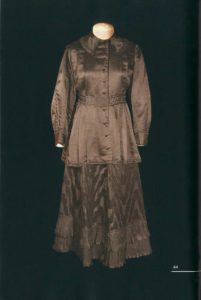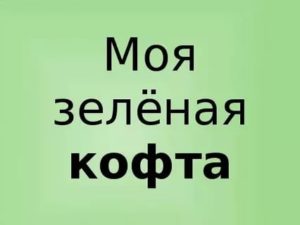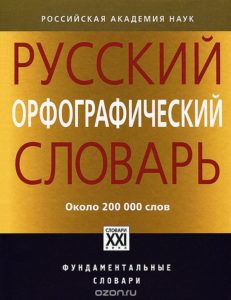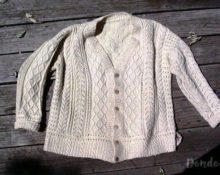 A jacket is one of the most popular types of clothing in a modern wardrobe.
A jacket is one of the most popular types of clothing in a modern wardrobe.
This is quite easy to explain. Due to their comfort, softness and good compatibility, they are worn by women and men, adults and children.
There are models designed exclusively for winter, but there are also summer options. They can be narrow and voluminous, with long or short sleeves, with or without a collar, knitted from threads and sewn from fabric.
Stores sell sweaters with other names: jacket, cardigan. However, they have one thing in common: a fastener from the top to the bottom of the product.
If previously only buttons were used for fastening, the modern Fashion Industry offers many more options. The shelves are connected with zippers, buttons, hooks and ties.
Almost everyone has sweatshirts. And we know a lot about them. And at the same time, an error often creeps into a simple product name. So, it's time to figure out how to write correctly.
The only correct option is a jacket

Some fashion researchers believe that the product appeared in ancient times.
And others claim that this happened in the 13th century. Even then, the inhabitants of Europe warmed themselves with its help.
In Rus' they did not know about such an object at that time. Let us remember Pushkin: “... trousers, tailcoat, vest, all these words are not in Russian,” just like there is no jacket.
The ancestors of the modern model, which appeared in Russia, were knitted. They came to us from the West. Because they learned to knit there much earlier.
As often happens, new names were not invented for beloved products. That's why a sweater, a jumper, and a pullover appeared. And all these foreign words require memorization! But let's return to our model.
Where did the jacket come from in the Russian language?

Every Russian student learns from the school course in the 5th grade that all words with the letter “F” are foreign languages.
There are two main versions: European or Turkic languages gave us this name.
Therefore, it is most logical to begin studying the issue of the origin of the word COFTA in our language from the dictionary of foreign words by A.N. Chudinov (1910).
Reference. At the beginning of the last century, it was established that this name has Swedish roots. In this case, it means “short women’s dress.”
A closer look at the title raises another question. Was it not a relative of the Turkic caftan? Both items of clothing represent the so-called shoulder clothing. They are also united by a front clasp. So, maybe the jacket is a borrowing from Turkic languages?
To clarify this issue, let us turn to Vasmer’s most authoritative etymological dictionary. He explains the ways in which borrowings from West Germanic or Scandinavian languages came into Russian vocabulary.
Indeed, in Polish, Swedish, German and Danish pronunciation there is a variant that sounds similar to Russian. It means "short dress or cloak."
Other representatives of these languages call the same items of clothing very similarly. Only instead of the sound “O” they pronounce “U”.
The scientist also admits a relationship with the word “kaftan”. This item appeared in Rus' much earlier. Therefore, this is quite possible. After all, such clothing was first mentioned in Russian literary sources in the 15th century. By the way, is this where the error in the spelling of the word lies? Perhaps, because in the Old Russian language it looked like KAVTAN or KOFTAN.
The same dictionary also indicates that the European COFTA is a derivative of caftan.
Thus, no matter how difficult the path the word has traveled, it still came to us in its modern form from Europe in the 18th century.
Colloquial variant and the reason for its occurrence

Language is in constant motion.
Some phenomena disappear, new ones take their place. Therefore, the Russian language is supplemented with neologisms. Most often they come to us together with objects that are designated in the original language.
But sometimes some changes occur in the word form. They can be morphological or phonetic in nature.
The use of more familiar sounds instead of “alien” sounds is a fairly common colloquial phenomenon. This explains the presence of pronunciation variants of the word “KOFTA”. They are recorded in dialect dictionaries.
"Kokhta"
In 1965, a dialectological map of the Russian language was published. It noted the discrepancy between literary and colloquial norms. Among them is the pronunciation of “x” in place of “f”. Compare “KOKHTA”, “KHVARTUK”.This phenomenon is typical for Little Russian dialects widespread in the south of Russia.
"Kouwta"
Another option can be heard in Russian regions bordering Belarus.
There they pronounce a sound that resembles something between “U” and “V”. The fact is that Belarusians have a sound that experts call “u non-syllabic.” In Russian it would be called “u short.” In international transcription, a similar sound is indicated by the [W] icon.
The sound "U" sounds indistinct. Therefore, to Russian ears the sound is more reminiscent of “v”.
Apparently, this is where the pronunciation variant “KOVTA” came from. And after that, spelling errors began. After all, it’s no secret that some people adhere to the principle “as I hear, so I write.”
By the way, it is for this reason that similar disagreements arise about the word “SHOP”. But if the usual check by changing the form of the word (shop - shop) puts an end to the dispute, then you cannot do this with a jacket. No matter how we change the word, the sound “F” will always remain doubtful, because it is always in a weak phonetic position.
Reference: in some northern regions of our state you can hear another option, which sounds like “koPta”.
Why can't you write the letter "v" in a jacket?

Who would have thought that an ordinary sweater could provoke controversy and disagreement! In order to reconcile the disputing parties, you should turn to competent sources.
To begin with, go to the spelling dictionary. It is in it that the normative spellings, as well as possible options, are recorded.
So, it makes no sense to look for the word you are looking for on the page with the beginning of KOV-. He's not there! And it cannot be, since he has no other option.
Reasons for the error
When the language mastered this word, there were not so many literate people. Therefore, the colloquial version of pronunciation managed to gain a foothold in the popular consciousness. Apparently, this is the reason.
And even in handwritten sources, a few literate people sometimes made erroneous spellings.
By the way, these days correct Russian speech does not allow the word to be pronounced with a “V”. Modern transcription (recording a word with sounds) looks like this. [KOFTɅ], where [Ʌ] is a shortened sound “a”, the root is always “F”, and the emphasis falls on “O”.
Why you shouldn’t look for a test word for a sweater
We remember from school: often when difficulties arise, a test word helps. Indeed, it helps to hear full sound. Thus, in the word “oak” the last sound cannot be called distinct. And when you change (for example, like this: “oak trees”) all doubts disappear.
Reference: to check an unclear consonant, you need a version of the word so that it is followed by vowels or special consonants (R, L, M, N).
All efforts to find a test word in our case will be in vain. An ordinary school grammar and spelling dictionary will help prove this. It contains information that tells you how to change the word in search of a variant suitable for testing.
The dictionary entry contains the mark “zh.” This means the word belongs to the feminine gender. Therefore, you can try changing it by numbers and cases. And this is what will happen as a result.
- Nominative case – jacket, jackets.
- Genitive case – jackets, jackets.
- Dative case - jacket, jacket.
- Accusative case - jacket, jackets.
- Instrumental case - jacket, jackets.
- Prepositional case – (about) jacket, jackets.
As you can see, nowhere after “F” does a vowel or sonorant “L” or “N” appear. Their presence clarifies the sound and eliminates doubts.
An attempt to check using a diminutive suffix also turns out to be unsuccessful: blouse, blouse.
The same thing happens when searching for words with the same root, and when forming adjectives: blouse (material).
As you can see, none of the possible verification methods is suitable! Therefore, searching for a test word for a jacket is not suitable.
How to avoid writing mistakes
We offer reliable methods that will help you avoid mistakes.
The main thing is to remember the correct option
Everyone knows that there are several types of spellings, that is, correct spellings of words. Among them are those that regulate the spelling of unverified consonants in the roots of words. These include BUS, FOOTBALL, CAR and several others. Everyone has doubts about the spelling “F” or “V”.
How to remember
You can do this in different ways:
- memorize,
- find analogies.
Advice. Some people find rhyming helpful, for example, “in the photo I’m wearing a jacket and a veil,” here all nouns are written with the letter “F.”
There is another option - gaming. It is used when teaching children their native or foreign language. Why don’t adults also turn to the so-called children’s “memories”.
For this purpose, children are asked to look at the letter “F”. And then onto a toy with a sweater or jacket on it. After this, children, seeing a familiar letter, will associate it with these wardrobe items.
It is quite convenient and easy to remember that the jacket is similar to the letter F. Therefore, it is also written with it.
Where to check spelling if in doubt
As usual, a dictionary will give you the most accurate answer.
The word “jacket” can be found in any linguistic dictionary: from spelling to reverse.It is available in both the ethnographic dictionary and the fashion encyclopedia. Let's take a look at them.
- From the Explanatory Dictionary of T.F. Efremova, in addition to the correct option, you can find out the meaning. Previously, this was the name for women's home clothes, which were worn at night over a shirt.
- And Dahl’s dictionary also suggests familiarizing yourself with its Russian synonyms.
“F” is offered by every single linguistic dictionary.
There is also no other spelling found on the Internet. Wikipedia and other online reference books are unanimous regarding the letter form of a word.
Thus, the only spelling without an error is jacket
This is what is the norm.
Refer to dictionaries more often. You will be surprised how much interesting and surprising information you can get from them.



 0
0





